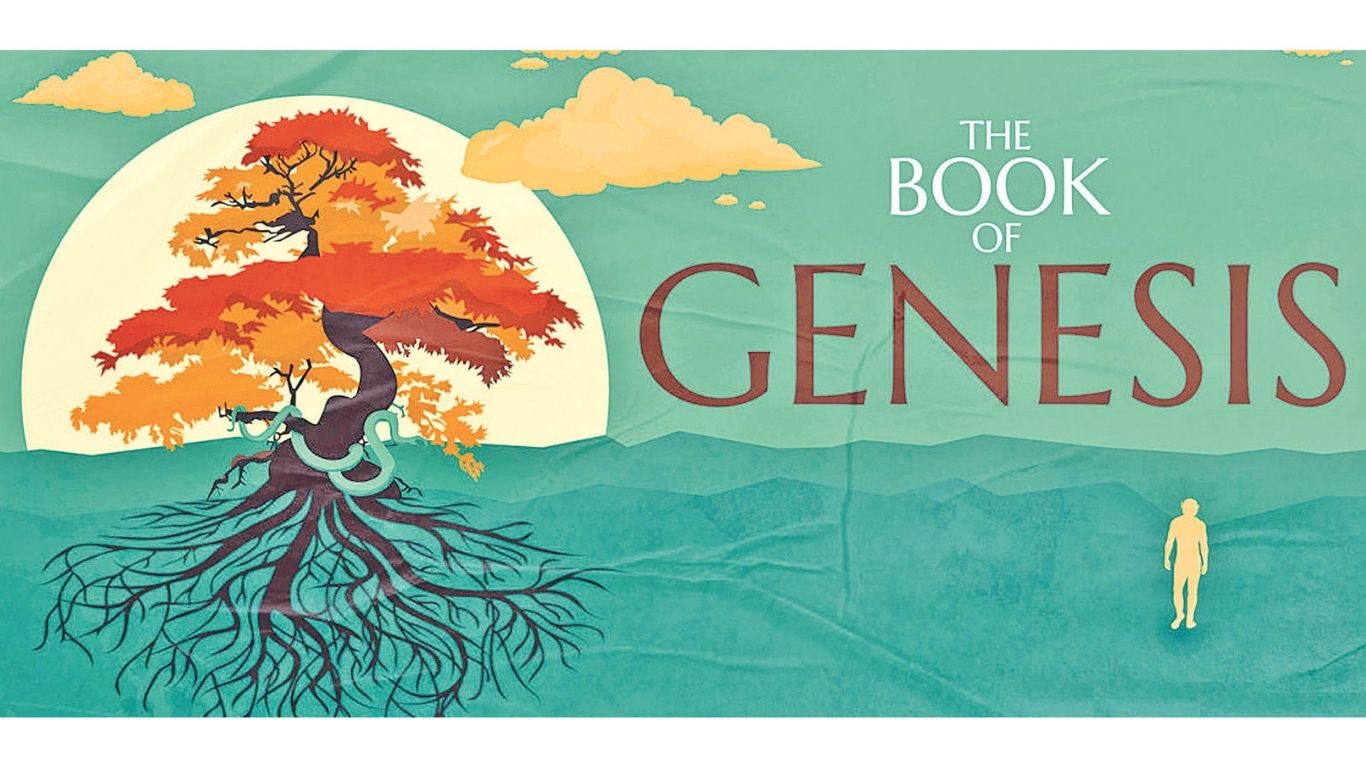Who were called sons of God in book of Genesis 6:2?
Reverend Martin Adhikary
Published: 31 Oct 2025

The identification of “the sons of God” has long puzzled Bible scholars, and it has not yet really been universally resolved. From various scriptural evidences and in line with the theological tenor of the overall theme in the narrative genre of the Old Testament book of Genesis, we can safely deduce that they were nothing else than ‘human beings.’
Traditionally, there have been three different views since the earliest time on this issue; a) sons of God were sons of princes, b) they were the fallen angels, and c) they were the godly men from the Sethite lineage. The first theory is untenable, as it does not conform to the usages of the language and the context in which we find the narrative. The second theory is believable only if: i) “sons of God” as mentioned in other scriptures are exclusively angelic beings, like in passages as Job 1:6; 2:1; 38:7; Daniel 3:25; Psalm 29:1; 8:7. Indeed, there are cogent arguments in favour of this. But there are many scriptures where the phrase “sons of God” refer to men— the children of Israel regarded as godly people. ii) If the concepts of “the sons of God” and the “daughters of men” are antithetical. The entire context and language do have clues to other possibilities. To quote from the Biblical commentary on the Old Testament—Vol I—The Pentateuch (by C F Keil and F Delitzsch) – “For it is not to angels only that the term ”sons of Elohim” or “sons of Elim” is applied; but in Psalm 73:15, in an address to Elohim, the godly are called “the generation of Thy sons”, i.e., the sons of Elohim; in Deuteronomy 32: 5, the Israelites are called God’s sons; and in Hosea 1:10, “sons of the living God”; and in Psalm 80:17, Israel is spoken of as the son whom Elohim has made strong. These passages say that the expression “sons of God” cannot be elucidated by philological means, but must be interpreted theologically.”
The writer of this piece personally agrees with the above position. Man was created by God in his image with physical character, needs and related attributes. On this ground it can be concluded from the narrative that it could be meant that “the sons of God” were people. Man is created a little lower than God (Psalm 8:5), and judges were also called “sons of the Most High” (Psalm 82:6). We find Man is also called “sons of God” also in Deuteronomy 14:1, Isaiah 43:6, Hosea 11:1, Luke 3:38, I John 3:1-2, 10, etc.
It is admitted that many ancient polytheistic myths show gods marrying and having children. But our Old Testament faith is monotheistic. The Hebrew language itself did not even possess a word for “goddess.” Ronal Youngblood in his book Genesis 1-11—How It All Began, Chapter 8 says, “Sons of God in such passages is not to be understood literally, of course. Although other ancient religions had highly developed cosmogonies (mythological stories about gods), the religion of the Old Testament teaches that there is only One God, who has neither family nor rivals.” He, of course, talks here of those references that are alluded to by some scholars in favour of the thesis that “the sons of God” in Genesis 6:2 were angels.
Also, passages like 1 Peter 3:19-20, 2 Peter:2:4 and Jude 6 are referred to by those scholars for their argument. But we can say that the 1 Peter-reference is vague, the 2 Peter reference is not tenable since it tells about rebellion against God before the Fall; and lastly, Jude 6 refers to punishment of Man by God (the word ‘man ‘is used as many as 4-5 times in the short passage, verses 3-7 and as such we cannot understand why Man was punished for the sins committed by angels. If the reference is to mean those beings as “angels” this reference would be the first reference to the angels in the Bible. It seems strange in view of the dimension of the issue in question.

The genre of the Genesis stories is not mythological, but theological narrative of history. It would be pointless to heavenly beings in this metaphorical or figurative way. We do well to turn to Jesus’ teachings about angels in the Gospels in this matter (Luke 20:34-36, Matthew 22:30, Mark 12:25) where he teaches that angels do not marry, would not die. So, we cannot subscribe to the view that “the sons of God” were angels. We can note also that Luke 3:38 terms Adam ‘as son of God’. Christians, in general, are called in the New Testament (1 John 3:1, 2, 10).
Howard F Vos in Genesis argues in favour of our position that those beings were men. He says, “Moreover, angels do not appear in any of the first five chapter of the Book, (i.e. Genesis), nor do they clearly appear in the context. And it is strange that judgment would fall on man alone for the sins committed when angels presumably bore the primary guilt.” This is reiterated here. In order to find a solution to this enigma, we do well if we also look beyond the short passage—Genesis 6:1-8 to the narrative since the Fall of Man (Genesis 3) where the various stories reflect on the moral corruption and degeneracy of the human race as a whole. This makes us view the “sons of God” as men. Perhaps the author used this enigmatic phrase “sons of God” not to confuse us, but to highlight his teaching about the depraved conditions due to the utter degeneracy and apostate human situation continually getting worse and worse. A thread runs through the entire Genesis stories that starting with Adam, God’s son—human society as a whole continued to be apostate and eventually calling for God’s interference in dealing with the deluge that was to follow with the intention of starting off the human culture anew. So, a comprehensive understanding of this Biblical theme called for in rightly identifying “the sons of God” as well as “the daughters of men” in Genesis 6:2.
Right after the Fall we know of the seminal consequences of sin in fatricide by Cain, the revengeful schemes, polygamy by Lamech with intention of multiple revenge (Genesis 4:19-24), and the like. Adam begat Seth (Genesis 4:25, 5:3). Eve said in 4:25 she got her son Seth with God’s help in place of Abel, who was born of Adam, we are told at 5:3, in Adam’s image. So, see that Seth came in place of Abel, who was a righteous man; but he was in the image of Adam, the Fallen man. The tenor of the continued degeneracy reached a climax narrated in Genesis 6. Throughout the entire Bible, two parallel lines can be discerned: the line of God’s people—godly, yet enslaved by sin—and the line of the ungodly. Beginning with Cain and Seth, these two lines respectively represent the two distinct types of humanity.
The two lineages that precede Genesis 6 are very pertinent for our discussion. Each of the number 7—the number for completeness, named in Adam’s lineages through Cain has its counterpart in the lineages through the other son of Adam, i.e., Seth—Adam to Lamech; and Adam to Lamech (though not in the same order). They represent two types of opposite characters - godly and ungodly.
Lastly, in Genesis 6:1 Man is a generic term representing the entire human race. So, any possible antithesis between ‘sons of God’ and ‘daughters of men’ does not speak in support of the idea that the former were angelic beings. They were fallen men, however godly they might have been—open and yielding to temptations and lusts as descendants of Adam and Eve, depraved and carnal and under the judgment of a holy and righteous God.
______________________________________
The writer is a Christian Theology teacher and Church leader

